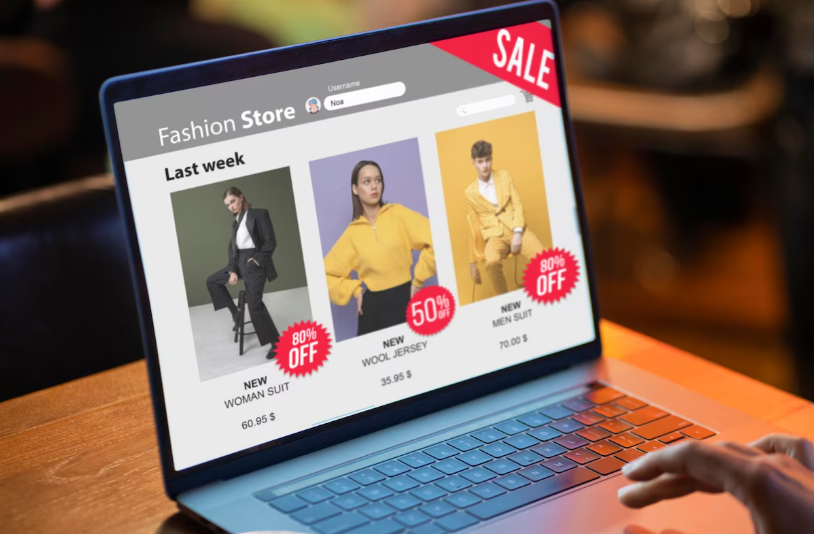If you want to launch an online business, Shopify is one of the simplest and most feature-rich platforms to create an e-commerce store. But opening up your store is only the first step — in order to receive traffic and make sales, your store must also be optimized to rank in Google. In this article, you’ll discover how to get your Shopify store set up correctly and how to optimize it for search engines so it shows up in search results.
Step 1: Choose the Right Niche and Products
Before setting up your Shopify store, spend time researching a profitable niche. Focus on:
Low-competition, high-demand products
Evergreen items that people buy year-round
Products you’re passionate about or have some knowledge in
Use tools like Google Trends, Ubersuggest, or Shopify’s Product Research Tool to find what people are searching for.
Step 2: Create a Shopify Account and Choose a Plan
Go to Shopify.com and sign up for a 3-day free trial. Once you’re in:
Choose a plan that fits your budget and business size.
Pick a store name that reflects your brand and includes relevant keywords (optional but useful for SEO).
Step 3: Select and Customize a Responsive Theme
Your store’s design plays a big role in user experience and SEO. Choose a mobile-responsive theme from the Shopify Theme Store. Look for:
Fast-loading templates
Clean navigation
Product-centric design
Tailor colors, fonts, and layout to your brand. Ensure clear CTAs, featured products, and trust indicators (such as reviews or badges) on your homepage.
Step 4: Add Your Products Correctly
When adding products:
Use high-quality pictures with descriptive alt text (is excellent for SEO).
Craft distinct product titles containing your primary keyword.
Use attention-grabbing product descriptions that:
Handle customer pain points
Contain benefits and features
Utilize keywords organically (avoid keyword-stuffing)
Example:
Rather than “Black T-shirt for men,” use:
“Premium Quality Men’s Black Cotton T-Shirt – Breathable & Comfortable Fit”
Step 5: Set Up Must-Have Pages
Your Shopify store should include:
About Us – Share your brand story
Contact Page – Include a contact form or email
FAQ Page – Answer frequently asked customer questions
Shipping & Return Policy – Establishes trust and assists with compliance
Privacy Policy & Terms – Necessary for trust and legal protection
Use internal linking to link these pages to your homepage and product pages.
Step 6: Optimizing Your Shopify Store for SEO
Now is the fun part — ranking on Google.
A. Keyword Research
Use Ahrefs, SEMrush, or Ubersuggest to discover:
Long-tail keywords
Low-difficulty keywords
Buyer intent keywords
For instance:
Targeting “makeup” instead of using “cruelty-free vegan makeup kit.”
B. On-Page SEO
Title Tags: Place your primary keyword at the start.
Meta Descriptions: Create a compelling, keyword-based summary in under 160 characters.
H1 Tags: Have your product or page titles enclosed in H1.
Image Alt Text: Label each image with a descriptive keyword.
C. URL Structure
Shopify generates URLs automatically, but you can also modify them:
Shorten URLs and make them keyword-friendly
e.g., /products/black-leather-handbag instead of /products/item123
D. Site Speed
Use compressed images
Don’t have apps or scripts that are not needed
Use a tidy, swift theme
Google prefers quick sites, and Shopify offers natively hosted sites that are optimized for speed.
Step 7: Add Critical Shopify Apps for SEO
Some of the best apps to assist with optimization are as follows:
Plug in SEO – Reviews your site and provides SEO recommendations
Image Optimizer – Resizes and adds alt tags to pictures
Smart SEO – Propagates metadata and structured data (schema markup)
Step 8: Get Your Site Listed in Google
Once your store goes live:
Set up a free Google Search Console account.
Upload your XML sitemap (located at yourstore.com/sitemap.xml).
Add your store to Google Business Profile if you also have it available locally.
Step 9: Begin Blogging (Content Marketing)
A blog drive organic traffic and increases SEO. Utilize it to:
Provide answers to customer questions
Provide product guides
Provide industry trends
Every blog entry should be written for a specific keyword and redirect to similar products or pages.
Example:
A fitness gear selling store would post a blog like this:
“Top 10 Home Workouts That Don’t Need a Gym”
along with links to their yoga mats or resistance bands.
Step 10: Build Backlinks and Promote Your Store
SEO is not only about your site but also about who’s linking to your site.
Get listed in directories
Reach out to bloggers for reviews or mentions
Use HARO (Help a Reporter Out) for press mentions
Also promote your site through:
Social media
Pinterest (well suited for product visibility)
Email marketing
How to Properly Set Up a Shopify Store 2025
Properly setting up a Shopify store is just the beginning. To be successful, you need to prioritize SEO from the very beginning. By executing these steps — selecting the right niche, searching-engine-optimizing your store, and marketing it intelligently — you improve the chances of ranking on Google and creating a lucrative online business.
Begin smart, continually optimize, and remain consistent — that’s how you will be a winner in 2025 and beyond.

